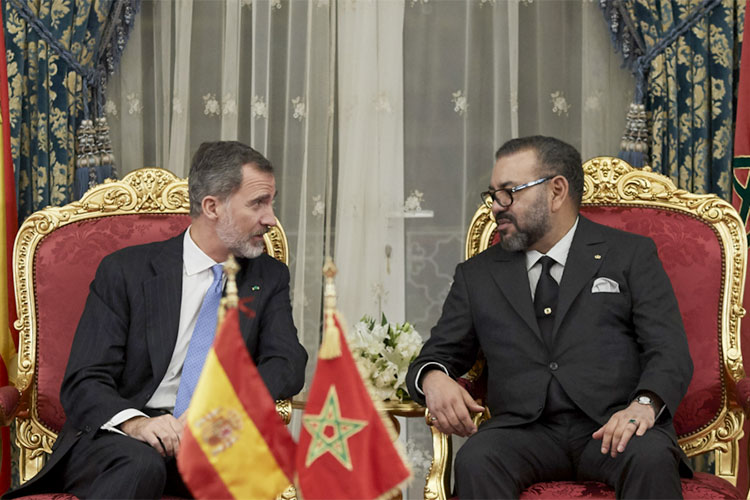European Council Urges Spain To Review Its Relations With Morocco’s Makhzen regime

The problems of the Moroccan Makhzen regime with its traditional allies on the European continent are increasing day by day, and in a coup that was not expected even by the most pessimistic, the European Council called on Spain to review its relations with the Moroccan regime because of the latter’s gross violation of human rights, just two days after the decision of the Parliamentary Commission of Inquiry on the “Pegasus” espionage scandal, by classifying the case as a criminal case and transferring it to the European police.
The European Council’s decision came in the context of the brutal treatment of African illegal immigrants by the Moroccan police and gendarmerie at the walls of the occupied city of Melilla on 24 June and on previous occasions, which is considered a flagrant violation of human rights under European law.
In a report published on Wednesday 10 May, the European Council, a body made up of the heads of state and government of the member states of the European Union, demanded that Spain, as a member state of the Union, “suspend all joint activities that lead to human rights violations” in the Kingdom of Morocco.
The European Parliament issued this shocking report on the Moroccan detention centre system following a visit by the Council of Europe’s Commissioner for Human Rights, Dunya Mijatovic, to Spain last November, which included the city of Melilla, a visit which revealed to the European official the extent of the cruelty and brutality with which the Moroccan police and gendarmerie deal with migrants.
Illegal Africans who, about two years ago, attempted to cross the walls of the city of Melilla in order to reach the European mainland and then obtain the status of asylum seekers.
The Spanish news agency EFI spoke of what the Council of Europe’s Commissioner for Human Rights described as “a particularly harsh diagnosis of the events that took place in Melilla” and stressed the need for “radical changes in the management of migration, especially in those cities (Melilla and Ceuta) that were occupied by Spain many centuries ago”.
The number of African victims of illegal immigration who died at the hands of the Moroccan police and gendarmerie during the bloody events in Melilla on 24 June 2021 remains unknown to this day: while the official figures provided by the Moroccan government speak of only 23 dead, identical sources indicate that the real number is around a hundred.
This explains the haste with which the Makhzen regime buried the bodies of the victims before dissecting them and before opening an investigation into the circumstances of what happened, which at the time was seen as a desperate attempt by the Moroccan authorities to cover up the heinous crime.
These tragic events took place before the eyes of the Spanish police, who witnessed the horror of the scene, which was behind Dunja Mijatović’s call for the Spanish government to “instruct the security forces to act in accordance with international human rights standards when detaining migrants at the borders of the cities of Ceuta and Melilla”.
The report states: “We insist that Spain has an absolute obligation to ensure that no one under its jurisdiction is subjected to ill-treatment, torture or threat to life after expulsion.” It also confirmed that the Moroccan Makhzen Regime “used violence against migrants and that they were subjected to horrendous ill-treatment”, referring to the bloody events of 24 June.
The Council of Europe Commissioner for Human Rights said she was concerned because she had written to the Spanish Minister of the Interior, Fernando Grande-Marlaska, asking him to reconsider cooperation with the Kingdom of Morocco in order to prevent future tragedies, but she had not seen any response from the Spanish side. The Spanish government’s response to these criticisms was that there had been no decision by the European Court of Human Rights or the Constitutional Court condemning these tragic events.



